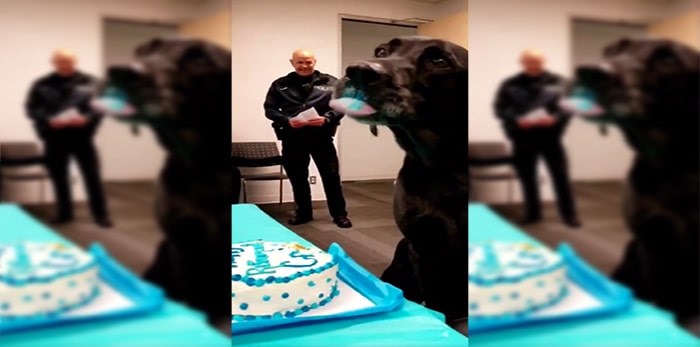The two dedicated staff were given a send off by comrades on Thursday. In a short video posted to the Transit Police Twitter page Cruiser can be seen happily wolfing down a well-deserved cake.
https://twitter.com/TransitPolice/status/1144381290084368384
Const. Hogg was the Canine Lead Handler at Transit Police for almost six years. Prior to that he was a sergeant at the Vancouver Police Department for 28 years.
Cruiser was one of six Labrador Retrievers in the Transit Police Dog Service team. His paw-trols will now be left to Lucie, Kona, Diesel, Blaze and Silver.
Metro Vancouver Transit Police introduced the Transit Police Dog Service for counter-terrorism purposes in 2010, just in time for the winter Olympics.
Transit Police says while officers are specially trained to identify suspicious behaviour that may be linked to terrorist activity, the role of Transit Police dogs in keeping our transit system safe and resilient is key.
Having 220 million scent receptors in their nose allows dogs to quickly determine the presence or absence of scents given off by explosive materials.
“The use of explosive detection dogs means that suspicious packages can be handled quickly, transit stations remain open and service disruptions are minimized,” the Transit Police website states.
“Having so many trained noses on the transit system allows us to prevent potentially dangerous activity before it occurs, and occasionally even assist other police agencies.”
Transit Police says the dogs are friendly, and used to the crowded and busy environments of the transit system but advises that you “please, always ask before petting any working dog.”



